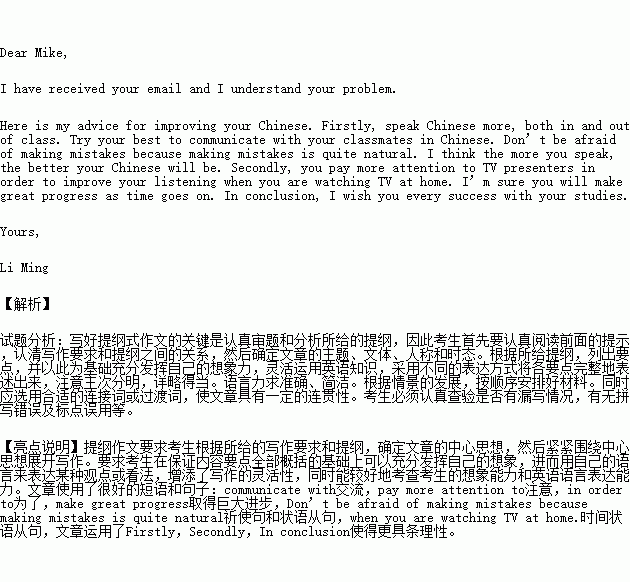��Ŀ����
�������
���������������һλ����Ӣ��������Mike�����븸ĸһ���������й�������է�����������Լ��ڼ�ʱ��ѧ�ĺ�������Ͳ����á���ˣ������㷢��һ������ʼ���������������ߺ�����˵������������������ʾ��������һ���ʼ����ʼ������ݰ�������Ҫ�㣺
1. �ʼ����յ��������������������⡣
2. ������½��飺�ڿ��ڿ���Ҫ��˵���Ӧ��������ͬѧ��������Ҫ���ķ������ڼҿ�����ʱ����ע���Ŀ�����˵ķ������Ա��������ˮƽ��
3��ףԸ��ѧϰȡ�ý�����
ע�⣺1. ����Ӧ��������Ҫ�㣬���ʵ�����ϸ�ڣ���ʹ�������
2. ������100���ҡ�
__________________________________________________________________________________
__________________________________________________________________________________
Yours sincerely,
Li Ming
��ϰ��ϵ�д�
�����Ŀ

